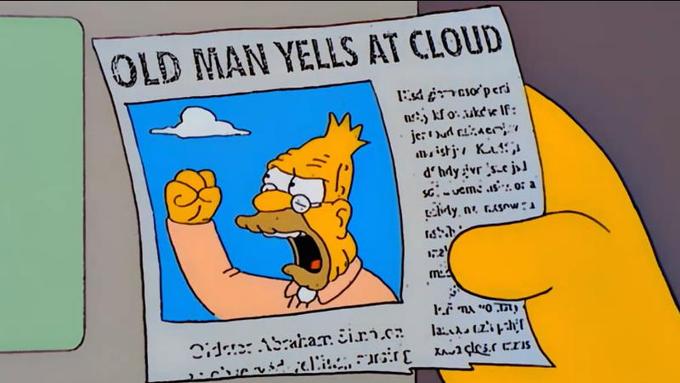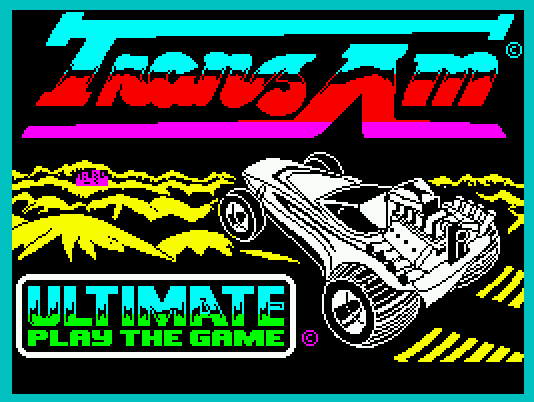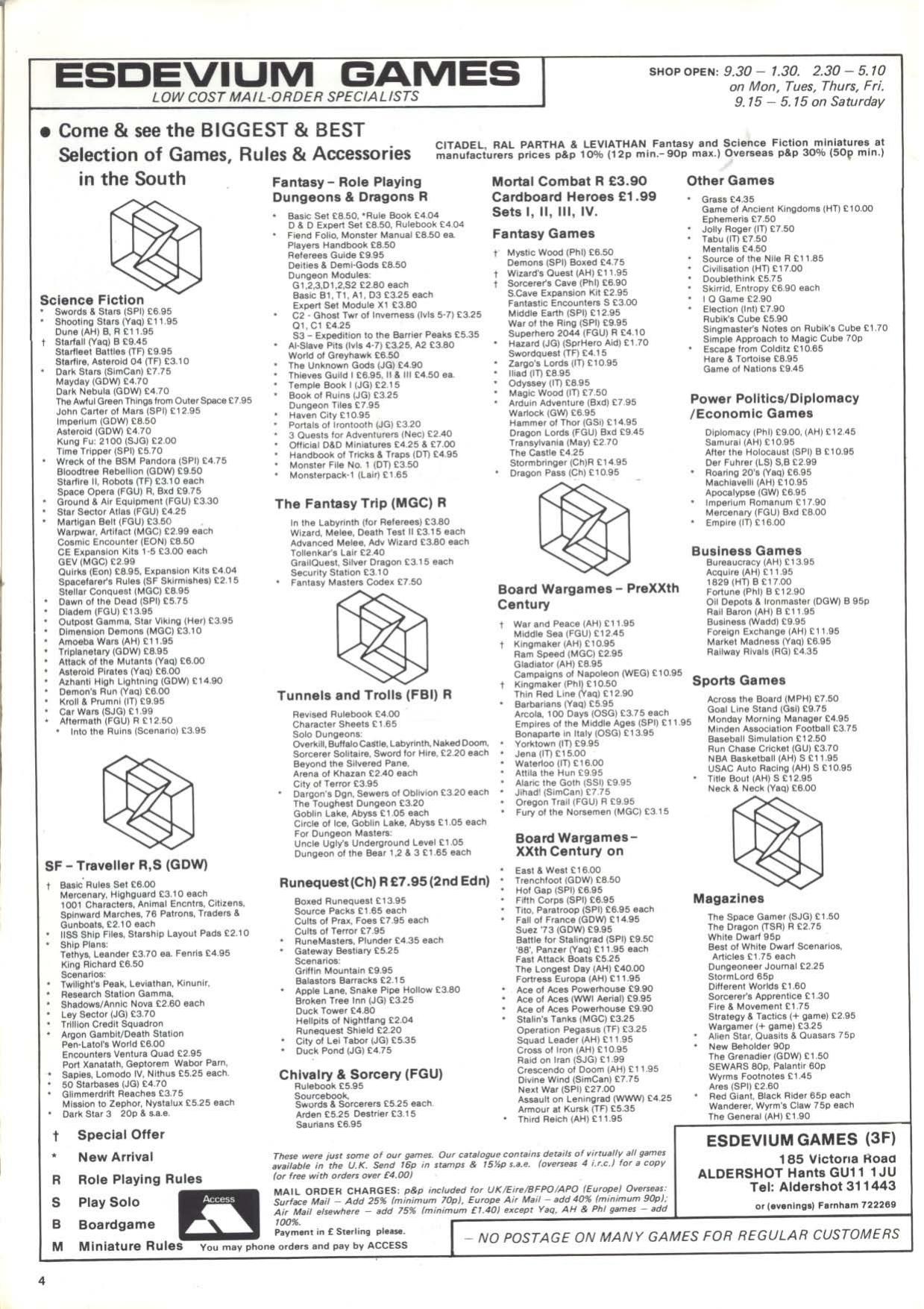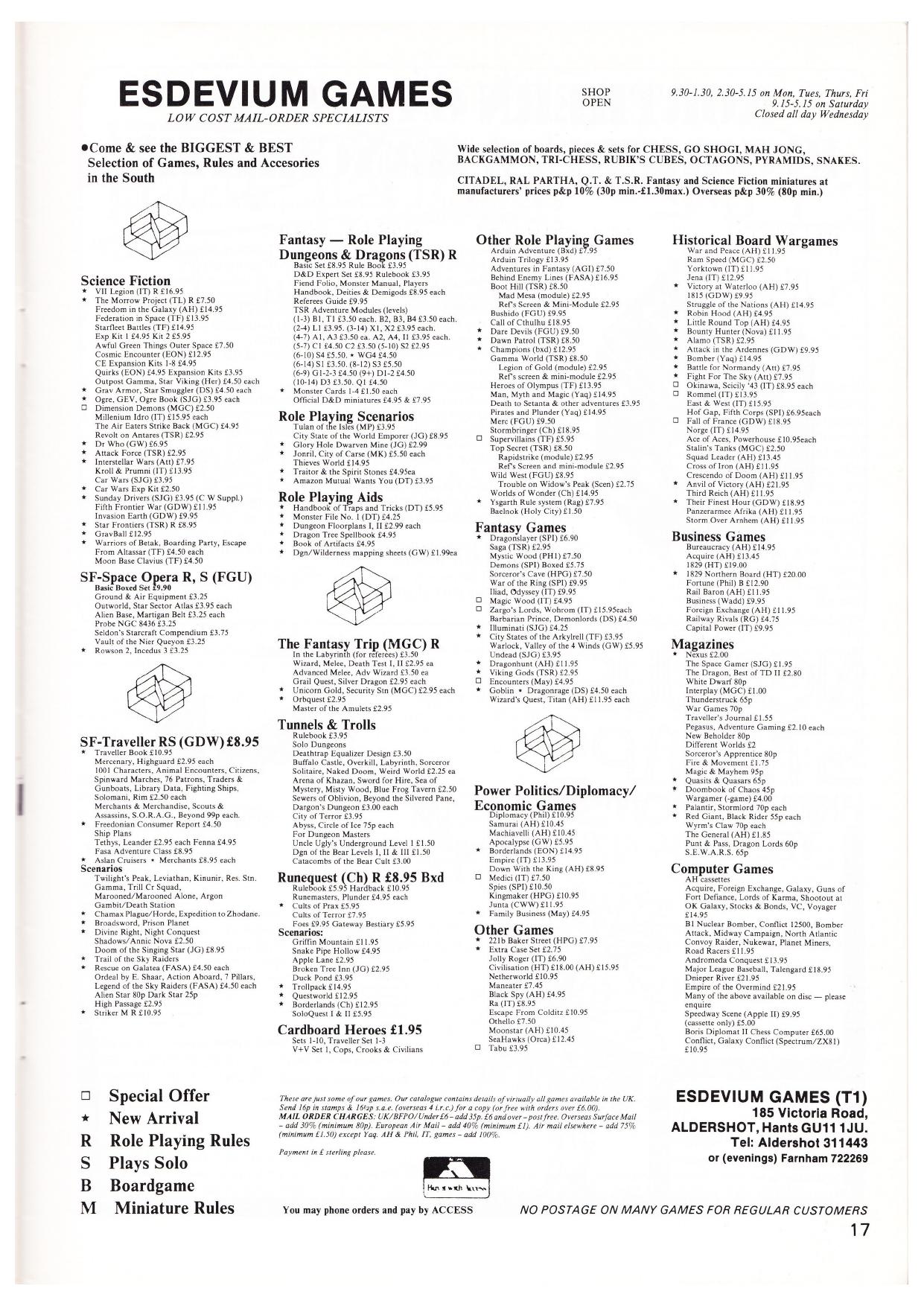95 bits per second – Alan Pope’s blog
Feel free to skip this blog if you’re triggered by “Old man yells at cloud” or “Grandpa tells us about his childhood” style posts. This is the second in a row after a moan about my cellphone. A more lighthearted story will follow tomorrow, I promise.
I grew up (and still live near) a small village in the UK called Mytchett. It’s not famous for much other than “housing” Rudolf Hess, who was held there for a while during the Second World War.
On a slightly lighter note, the late, great comedian Jeremy Hardy grew up there, calling it a “Suburb of the M3” (motorway), and “A village so small, you could buy baked beans individually.”
Local shops
While I grew up in the 1980s, the UK home computer scene was burgeoning. There were so many niche little 8-bit microcomputers vying to be top dog. I had a Sinclair ZX81, various Sinclair Spectrums, and an Amstrad CPC-464. I sold each one to fund the next upgrade.
Software availability in Mytchett was non-existent. I had to travel to the nearest town to get games for my 8-bit microcomputers. The leading vendor was a newsagent called “Martin’s”. They sold books, newspapers, stationery, confectionery, records, tapes, and a small selection of computer games.
On a Saturday morning, my pocket money would burn a hole in my pocket as I rotated the carousel of limited selections at the back of Martin’s. More often than not I’d come away with one ‘premium’ game at £7.99, or a couple of low-budget games on the Mastertronic label for £1.99 or $2.99 each.
The bus ride home from town would be like moving in slow motion. I’d have plenty of time to read all the cassette inlays twice and deliberate which game I’d play first, if I had more than one.
Then there was the loading time. If it even loaded on the first attempt. Sometimes, a new tape would necessitate a little fettling of the cassette head azimuth. If you were lucky, it worked immediately. If not, you might need a few attempts, hold your breath, sacrifice a chicken in a pentagram, and sit like a statue for ten minutes.
The wait was generally worth it.
Further out
In 1988, I moved to a ‘proper’ computer – an Epson Equity 8088-based PC I acquired from a local company going out of business. It came with a single 5.25″ floppy drive and (as I recall) a 10MB hard disk. It was quite the upgrade from the Amstrad CPC-464. However, it only had a green monochrome display (which, to be fair, I also had with my Amstrad), and a text-only video card! There was also no sound card either, just a beeper.
Martin’s newsagent didn’t keep up with the times. They never sold PC-compatible software that I recall. For a long while, nowhere near me did, certainly not in the village nor the main town nearby.
There was a popular board game shop called Esdevium Games in Aldershot, the next town over. They started trading in the 1970s and are still going under the name Asmodee.
Back then, they were mostly in the business of selling board games, role-playing paraphernalia, magazines, and the like. Here’s an advert for them from from a 1981 issue of Phoenix.
They later branched out to sell video games. Mostly games which fit their existing clientele’s demographic. Here’s an advert from issue 1 of Imagine – Aventure Games Magazine from just a couple of years later, in 1983.
Note the “Computer Games” section in the bottom right:
Hardware “upgrades”
As already mentioned, the graphics card on my Epson PC was a mono text-only affair. It was impossible to display any kind of graphics beyond the onboard text font. I am certain this may have contributed to my love of the Code page 437 aesthetic.
In my first junior IT job out of college, I looked after some of the PC technology. The computers there were basic beige boxes with low specifications. I managed to snag a Hercules graphics card before it was thrown out, having been removed from a PC being upgraded.
The very idea that a Hercules mono 720×348 card from 1982 was an ‘upgrade’ is laughable now, just as it was in 1990 when I got it. It was a glorious improvement over the previous card, even in monochrome. So many pixels could be individually addressed, I was in pixel heaven.
The 5.25″ drive was feeling a bit ancient and cramped by 1990. So I bought 3.5″ drive, which connected via an ISA card round the back. 720KB was an enormous amount of storage for the time.
Software by post
It was around this time I started getting software by post. I initially ordered some disks from a company that I saw advertised in a magazine at the time. I don’t recall which one, and I haven’t spotted any familiar adverts in the magazine scans I’ve browsed online.
With the delivery came a printed catalog. Each page was crammed with lists of floppies, each with a description of their contents. An order form at the back of the catalog could be filled in, stuffed in an envelope with a postal order or cheque, then poked into the nearest post-box.
Then, we wait. The old days of a bus ride home with a Spectrum cassette inlay to read was positively immediate software delivery by comparison. I’d read and re-read the catalog as I waited for the padded package of programs to arrive.
I recall buying a disk containing a Pascal compiler at one point. This was before Turbo Pascal (which I did use later), and I don’t know what it was officially called.
I had no experience with Pascal but had heard of it at College. I taught myself to write applications, games, and other nonsense. It was quite the “voyage of discovery.”
I typically waited about a week for a parcel full of disks to arrive on the doormat, along with the next edition of the catalog and the order form for my next inevitable order. I sent off for around ten disks at a time. I valued those deliveries back then. The fact I had to wait so long for a software package made it more special.
“Never underestimate the bandwidth of a station wagon full of tapes hurtling down the highway.”
Back then, a week to receive ten floppies works out at:
10 (floppies) x 720KB (if full) = 7.2MB
7.2MB / 1 week = ~95bps
Now, a couple of seconds or less:
$ time scp alan@popey.com:~/7.2MB.file .
7.2MB.file 100% 7031KB 9.1MB/s 00:00
real 0m1.575s
user 0m0.047s
sys 0m0.032s
Kids these days, huh?
They don’t know how good they have it! etc etc




